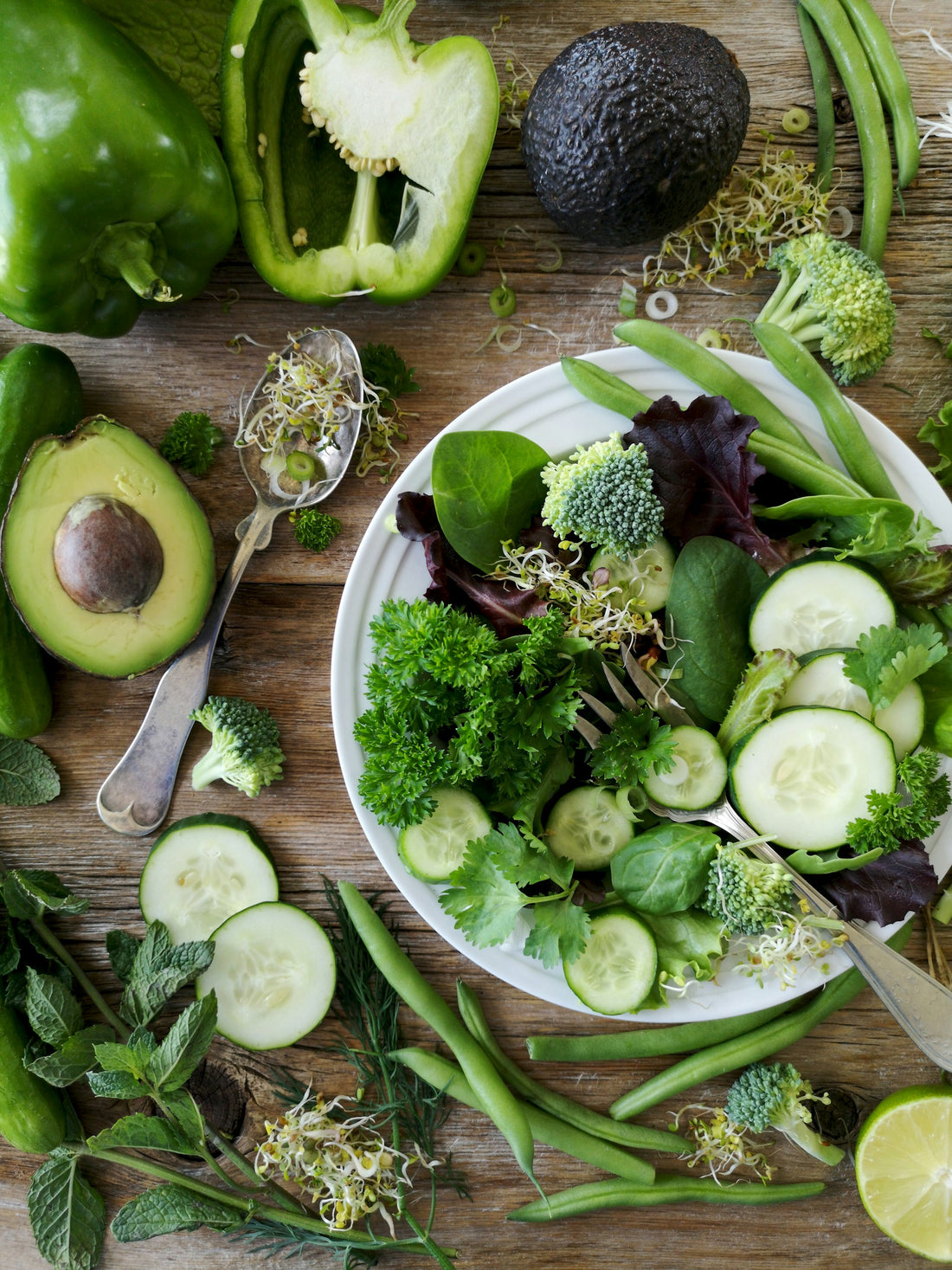
The Benefits of a Plant-Based Diet: How Going Green Can Boost Your Health
Share
The plant-based diet has become a growing trend as more people discover its numerous health benefits and environmental impact. Whether for personal wellness, ethical reasons, or sustainability, going green has become a way of life for many. However, there are common misconceptions about plant-based diets, such as the fear of lacking essential nutrients or not getting enough protein. The truth is, a plant-based diet can provide all the necessary nutrients for a balanced, healthy lifestyle while offering a range of benefits for both your body and the planet.
Why Choose a Plant-Based Diet?
Improved Heart Health and Reduced Risk of Chronic Diseases
A plant-based diet has been linked to better heart health, as it is typically low in saturated fats and high in fiber, antioxidants, and healthy plant compounds. Studies show that individuals who follow plant-based diets have a lower risk of heart disease, high blood pressure, and high cholesterol. Additionally, plant-based eating has been shown to reduce the risk of chronic diseases like type 2 diabetes and certain cancers.
Weight Management and Better Digestion
One of the key benefits of a plant-based diet is its ability to support healthy weight management. Since plant-based foods are often lower in calories but rich in nutrients, fiber, and water content, they help you feel fuller longer while consuming fewer calories. Moreover, the high fiber content of fruits, vegetables, and whole grains promotes better digestion and gut health, reducing the risk of constipation and bloating.
Environmental Benefits
Switching to a plant-based diet not only benefits your health but also the environment. Plant-based foods require fewer resources, such as water and land, and generate fewer greenhouse gas emissions than animal-based foods. By choosing plant-based options, you can reduce your carbon footprint and contribute to a more sustainable and eco-friendly food system.
Key Nutrients in a Plant-Based Diet
While a plant-based diet is rich in nutrients, it's important to be mindful of certain essential vitamins and minerals. Here are some key nutrients to focus on:
Protein Sources
Contrary to common belief, you can get plenty of protein on a plant-based diet. Protein-rich plant foods include beans, lentils, chickpeas, tofu, tempeh, quinoa, and various nuts and seeds. These options provide not only protein but also other important nutrients like fiber and healthy fats.
Vitamins and Minerals
- Vitamin B12: This essential vitamin is typically found in animal products, so it's important for plant-based eaters to either take a B12 supplement or consume fortified foods like plant-based milks or cereals.
- Iron: Plant-based sources of iron include lentils, spinach, chickpeas, and fortified cereals. Pairing these foods with vitamin C-rich fruits (such as oranges or bell peppers) can help improve iron absorption.
- Calcium: Non-dairy sources of calcium include leafy greens (like kale and collard greens), tofu, fortified plant milks, and chia seeds.
Tips for Transitioning to a Plant-Based Diet
Making the switch to a plant-based diet doesn’t have to be overwhelming. Here are a few tips to ease the transition:
-
Start with "Meatless Mondays"
Begin by incorporating one meatless day into your weekly routine, such as "Meatless Mondays." Gradually increase the number of plant-based meals throughout the week as you become more comfortable with plant-based cooking. -
Meal Planning and Prepping
Planning your meals in advance can make the transition smoother. Prepping ingredients like beans, grains, and vegetables ahead of time ensures you always have nutritious options ready to go. Having a plan can also help you maintain variety in your meals and prevent you from falling back on old habits. -
Finding Plant-Based Replacements for Favorite Meals
You don’t have to give up your favorite meals! Look for plant-based alternatives that mimic the flavors and textures you enjoy. For example, swap out ground beef for lentils or veggie crumbles in tacos, or use tofu or tempeh in stir-fries instead of chicken. There are countless plant-based products available to make the switch easier.
Delicious Plant-Based Recipes to Try
Here are a few easy and delicious plant-based recipes to get you started:
-
Lentil Tacos
Sauté cooked lentils with taco seasoning and serve with your favorite toppings like avocado, salsa, and lettuce. This protein-packed dish is perfect for a quick, nutritious dinner. -
Chickpea Stir-Fry
Stir-fry chickpeas with a mix of colorful vegetables, garlic, and soy sauce, and serve over brown rice or quinoa. This dish is a flavorful and filling option for a healthy lunch or dinner. -
Smoothie Bowl
Blend a combination of frozen fruits (like bananas, berries, and spinach) with plant-based milk and top with chia seeds, granola, and sliced almonds. This makes for a refreshing and nutrient-packed breakfast or snack.
Tips for Maintaining Variety in a Plant-Based Diet
Keep things interesting by experimenting with new ingredients and cuisines. Explore different herbs and spices to add unique flavors to your meals. Additionally, try incorporating a wide variety of plant-based protein sources such as tempeh, seitan, and edamame to keep your meals satisfying and diverse.
Conclusion
A plant-based diet offers numerous health benefits, from improved heart health to better digestion and weight management. It also promotes sustainability and reduces your environmental footprint. By incorporating more plant-based meals into your routine, you can boost your health and well-being while contributing to a healthier planet. Experiment with plant-based foods and recipes, and enjoy the positive impact on your body and the environment!

